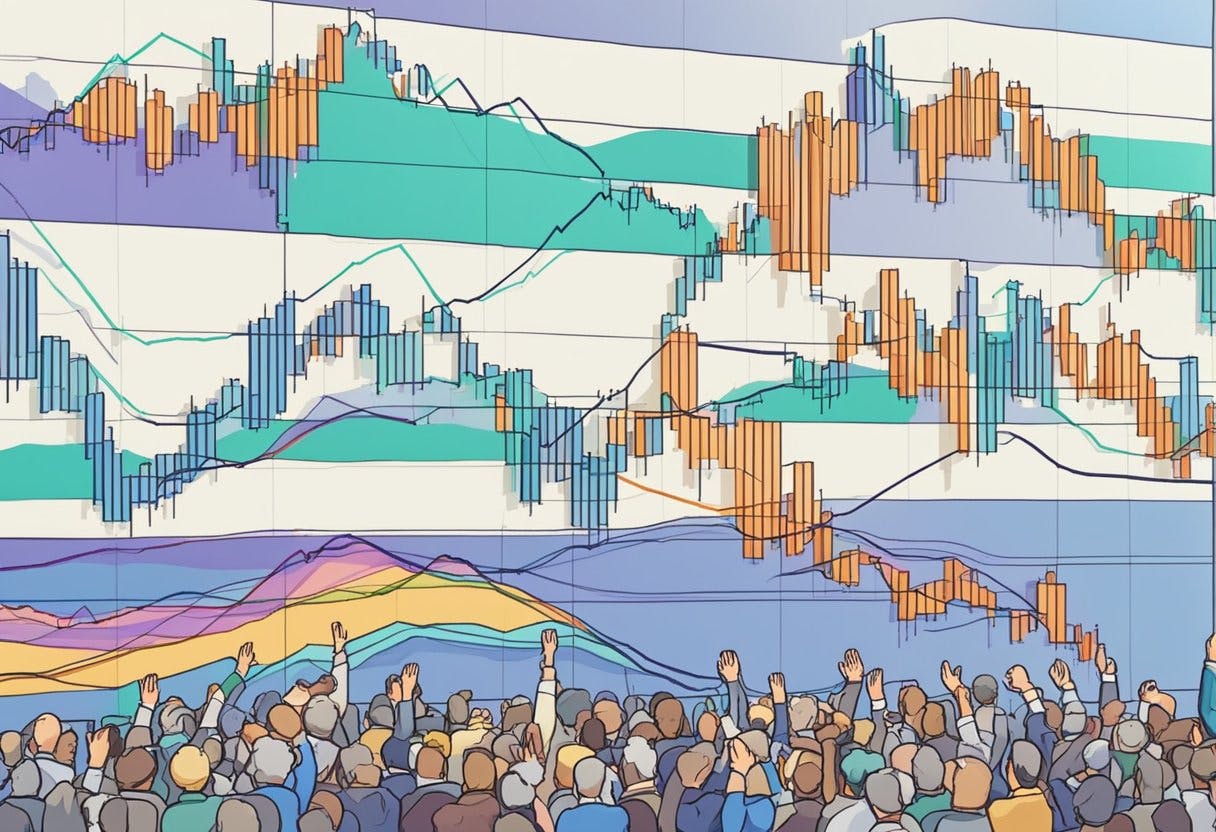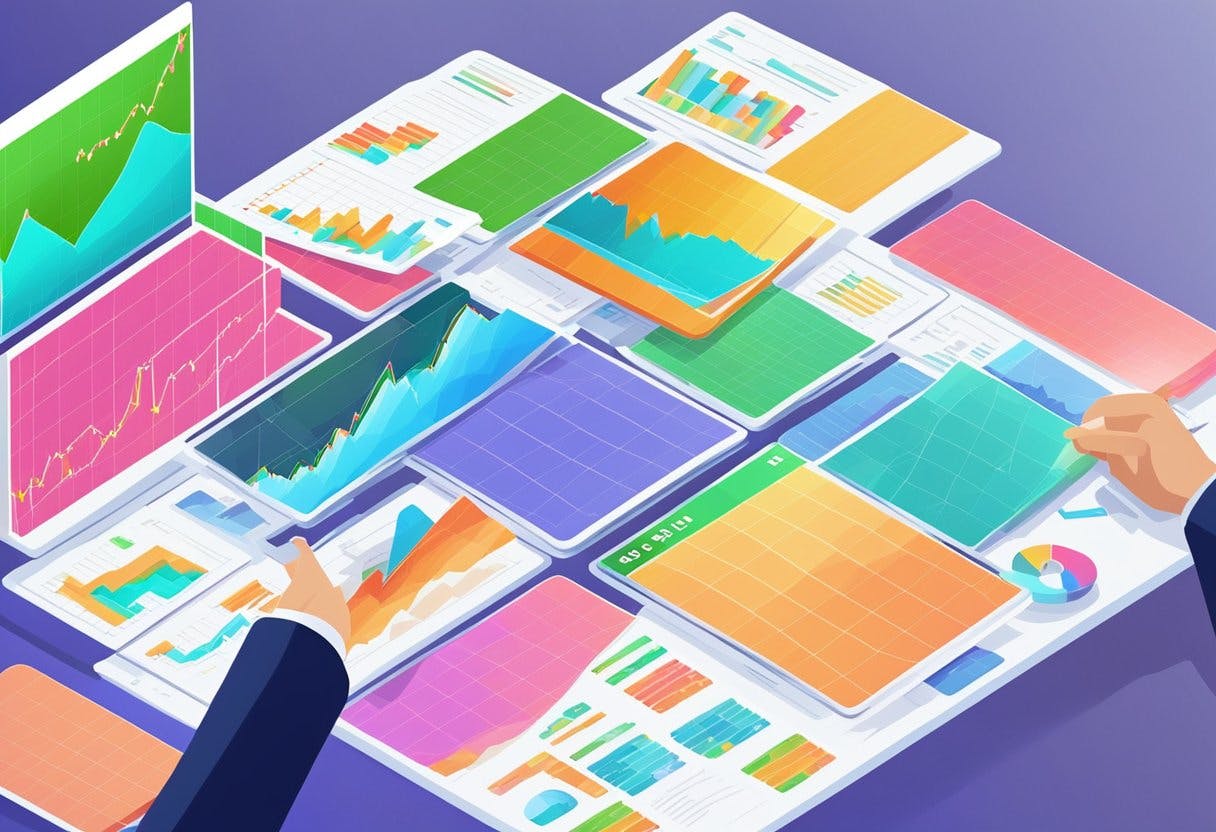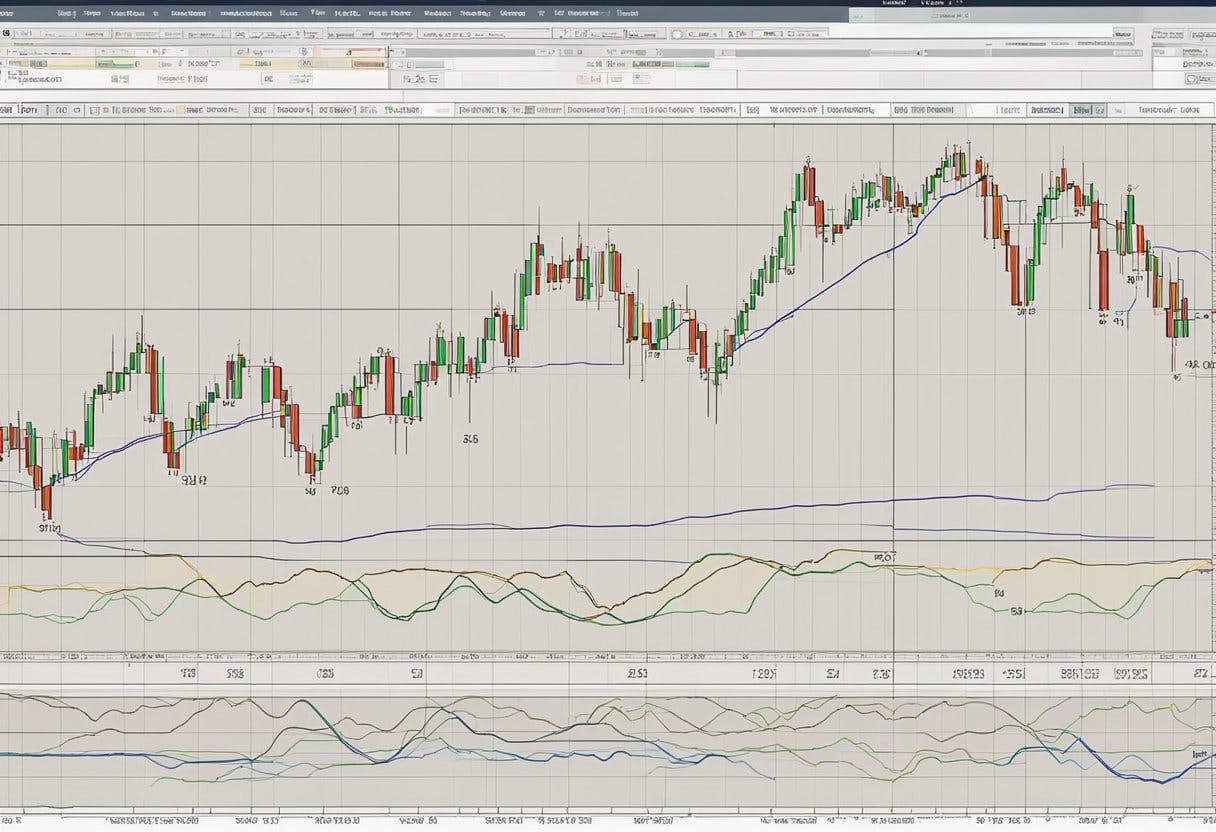
Political events can have a significant impact on the forex markets, introducing volatility and uncertainty. Forex traders and investors must understand the relationship between political events and currency exchange rates to navigate these changes successfully. Political events can be viewed by traders as an isolated case of potential political instability that can affect a country’s currency.

Forex markets are highly sensitive to political events, and the impact can be felt across the globe. The foreign exchange market is the largest financial market globally, with an average daily trading volume of over $5 trillion. Political events have the potential to affect the forex market’s supply and demand, which can lead to significant price fluctuations. Understanding the impact of political events on forex markets is essential for traders and investors to stay informed and make informed decisions.
Key Takeaways
- Political events can introduce volatility and uncertainty in forex markets.
- Forex traders must understand the relationship between political events and currency exchange rates to navigate these changes successfully.
- Political events can affect the forex market’s supply and demand, which can lead to significant price fluctuations.
Understanding Forex Markets

The foreign exchange market, commonly known as the forex market, is the largest and most liquid market in the world. It is where currencies are bought, sold, and exchanged at current or determined prices. The forex market operates 24 hours a day, five days a week, and trading volumes reach trillions of dollars.
Fundamentals of Forex Trading
Forex trading involves buying and selling currencies with the aim of making a profit from the difference in exchange rates. Currency pairs are quoted in two prices: the bid price and the ask price. The bid price is the price at which a trader can sell a currency, while the ask price is the price at which a trader can buy a currency. The difference between the bid and ask prices is known as the spread.
Role of Central Banks
Central banks play a crucial role in the forex market. They are responsible for implementing monetary policies that can affect interest rates and the value of a country’s currency. Central banks can intervene in the forex market to stabilize their currency’s exchange rate. For example, a central bank can buy or sell its currency in the forex market to influence its value.
Influence of Economic Indicators
Economic indicators, such as GDP, inflation, and employment rates, can have a significant impact on the forex market. Positive economic indicators can lead to an increase in a country’s currency value, while negative economic indicators can lead to a decrease in a country’s currency value. Traders closely monitor economic indicators to anticipate potential market fluctuations and devise informed trading strategies.
In conclusion, understanding the fundamentals of forex trading, the role of central banks, and the influence of economic indicators is crucial for anyone interested in trading in the forex market.
Effects of Political Events on Forex

Political events can have a significant impact on the forex market. The forex market is highly sensitive to political events, and any news that affects the political stability of a country can have a significant impact on the value of its currency. In this section, we will discuss the effects of political events on forex markets.
Elections and Forex Volatility
Elections are one of the most significant political events that can impact forex markets. Elections can create a lot of uncertainty, which can lead to volatility in the forex market. The outcome of an election can have a significant impact on the value of a country’s currency. For example, if a country elects a leader who is seen as pro-business, the value of its currency may increase. On the other hand, if a country elects a leader who is seen as anti-business, the value of its currency may decrease.
Impact of Wars and Conflicts
Wars and conflicts can have a significant impact on forex markets. Wars and conflicts can create a lot of uncertainty, which can lead to volatility in the forex market. The value of a country’s currency can decrease significantly during times of war or conflict. For example, the value of the Iraqi dinar decreased significantly during the Iraq War.
Trade Policies and Agreements
Trade policies and agreements can also impact forex markets. Trade policies and agreements can create a lot of uncertainty, which can lead to volatility in the forex market. For example, if a country imposes tariffs on imports, the value of its currency may decrease. On the other hand, if a country signs a trade agreement that reduces tariffs, the value of its currency may increase.
In conclusion, political events can have a significant impact on forex markets. Elections, wars and conflicts, and trade policies and agreements are just a few examples of political events that can impact forex markets. Forex traders need to closely monitor political developments and understand how they can impact the value of currencies.
Analyzing Market Reactions

When political events occur, they often have a significant impact on the forex market. Traders need to be able to analyze the market reactions to these events to make informed decisions about their trades. There are several different approaches to analyzing market reactions, including technical analysis, sentiment analysis, and risk management strategies.
Technical Analysis in Forex
Technical analysis is a popular approach to analyzing market reactions in forex trading. Traders use charts and other technical indicators to identify trends and patterns in the market. This can help them to predict future price movements and make informed trading decisions.
Some of the most commonly used technical indicators in forex trading include moving averages, Bollinger Bands, and Relative Strength Index (RSI). These indicators can be used to identify support and resistance levels, as well as potential entry and exit points for trades.
Sentiment Analysis
Sentiment analysis is another approach to analyzing market reactions in forex trading. This involves analyzing market sentiment to determine how traders feel about a particular currency or market. This can help traders to identify potential trends and make informed trading decisions.
Some of the most commonly used sentiment indicators in forex trading include the Commitment of Traders (COT) report, which shows the positions of large traders in the market, and the Speculative Sentiment Index (SSI), which shows the positions of retail traders in the market.
Risk Management Strategies
Risk management is an essential aspect of forex trading, especially when trading during times of volatility. Traders need to be able to manage their risk effectively to avoid significant losses.
There are several different risk management strategies that traders can use, including stop-loss orders, which automatically close a trade if the price reaches a certain level, and position sizing, which involves adjusting the size of a trade based on the trader’s risk tolerance.
Overall, traders need to be able to analyze the market reactions to political events to make informed trading decisions. By using technical analysis, sentiment analysis, and risk management strategies, traders can minimize their risk and maximize their profits in the forex market.
Global Events Shaping Forex Markets
Political events and economic policies can have a significant impact on forex markets. The value of a currency is often derived from the economic performance of the country it represents, and political events can affect that performance. In this section, we will explore some of the global events that have shaped forex markets in recent years.
Brexit and the Forex Market
The United Kingdom’s decision to leave the European Union, known as Brexit, has had a significant impact on the forex market. The British pound (GBP) has been particularly affected, with its value fluctuating dramatically in response to news and developments related to Brexit. As of December 15, 2023, the GBP is valued at 1.33 USD.
US-China Relations and Trade War
The ongoing trade war between the United States and China has also had a significant impact on forex markets. The Chinese yuan (CNY) has been particularly affected, with its value fluctuating in response to news and developments related to the trade war. The US dollar (USD) has also been impacted, as the two countries are major trading partners. As of December 15, 2023, the USD is valued at 6.48 CNY.
The COVID-19 Pandemic’s Influence
The COVID-19 pandemic has had a profound impact on the global economy and forex markets. The pandemic has led to economic shutdowns, supply chain disruptions, and changes in consumer behavior, all of which have affected the performance of currencies. The USD and the euro (EUR) have both been impacted by the pandemic, as the United States and Europe have been severely affected. The Chinese yuan (CNY) has also been impacted, as China was the first country to be affected by the pandemic. As of December 15, 2023, the USD is valued at 0.85 EUR and 6.48 CNY.
Overall, global events can have a significant impact on forex markets, and traders should be aware of political events and economic policies that could affect the performance of currencies.
Staying Informed and Adapting Strategies
In the volatile world of Forex trading, staying informed and adapting strategies are crucial for investors and traders to manage their risks and maximize their returns. This is especially true when it comes to political events and their impact on the Forex market.
Keeping Up with Geopolitical Tensions
Geopolitical tensions can significantly affect investor confidence and lead to fluctuations in currency values. Forex traders need to stay informed about the latest geopolitical developments to make informed trading decisions. This includes keeping track of major events such as elections, trade disputes, and government policies that can impact currency values.
One way to stay informed is to follow reputable news outlets that provide coverage of global events. Forex traders can also use economic calendars to keep track of upcoming events and their potential impact on the market.
Adapting to Economic Policy Shifts
Economic policy shifts can also have a significant impact on the Forex market. Changes in interest rates, for example, can affect the value of a currency. Forex traders need to stay informed about economic policy shifts and adapt their trading strategies accordingly.
One way to adapt to economic policy shifts is to use technical analysis tools to identify trends and patterns in the market. Forex traders can also use risk management strategies such as stop-loss orders to limit their losses in case of unexpected market movements.
In conclusion, staying informed and adapting strategies are essential for Forex traders to navigate the impact of political events on the market. By keeping up with geopolitical tensions and economic policy shifts, traders can make informed decisions and manage their risks effectively.
Frequently Asked Questions
How do geopolitical events influence the forex market?
Geopolitical events can have a significant impact on the forex market. These events can include political elections, wars, and natural disasters. When geopolitical events occur, they can create uncertainty and volatility in the market. This can cause investors to move their money to safer currencies, which can lead to changes in currency values. For example, if a country experiences political unrest, its currency may lose value as investors move their money to safer currencies.
Which economic indicators are most influential in forex trading?
Several economic indicators can influence forex trading. These indicators include interest rates, inflation rates, and unemployment rates. Central banks often use these indicators to make monetary policy decisions, which can affect the value of a country’s currency. For example, if a central bank raises interest rates, it can make a country’s currency more attractive to investors, which can lead to an increase in its value.
What role does political stability play in currency valuation?
Political stability can have a significant impact on currency valuation. When a country has stable political conditions, it can attract foreign investment, which can lead to an increase in its currency value. On the other hand, when a country experiences political instability, it can cause investors to move their money to safer currencies, which can lead to a decrease in its currency value.
How do major political announcements impact forex volatility?
Major political announcements, such as changes in government policies or election results, can cause volatility in the forex market. These announcements can create uncertainty about a country’s economic future, which can cause investors to move their money to safer currencies. This can lead to changes in currency values. For example, if a country announces a new tax policy, it can cause investors to move their money to currencies that are not affected by the policy.
What types of news should forex traders monitor for market shifts?
Forex traders should monitor a variety of news sources for market shifts. These sources can include political news, economic news, and financial news. Traders should also pay attention to market sentiment and technical analysis to identify trends and potential market shifts.
How does macroeconomic analysis apply to foreign exchange strategies?
Macroeconomic analysis can be used to develop foreign exchange strategies. This analysis involves looking at the overall economic conditions of a country, including its GDP, inflation rate, and employment rate. Traders can use this information to identify potential market trends and make informed trading decisions. For example, if a country’s GDP is growing, it can indicate that its currency value may increase in the future.
Read More




